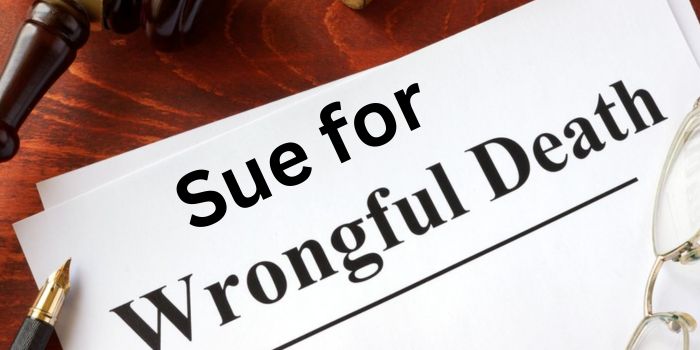A wrongful death lawsuit is highly delicate and intricate, demanding a deep comprehension of the legal system and associated parameters. If you’re facing such a situation because of someone near and dear to you, then it’s imperative that you be knowledgeable about the kind of compensation available to you. Let us journey through this challenging terrain as we uncover the intricacies of wrongful death lawsuits, contemplate the elements that affect the maximum settlement, and outline the steps necessary for rendering justice. Equip yourself with the facts, and the power to seek satisfaction rests in your hands.
What Constitutes Wrongful Death?
Wrongful death occurs when another party’s negligent or intentional actions cause an individual’s demise. These actions can take various forms, such as:
-
Medical Malpractice:
The medical industry has a solemn responsibility to guarantee that its practitioners meet the highest standards of care. Unfortunately, when such professional obligations are disregarded, the devastating consequences can include medical malpractice and wrongful death claims. As such, it is essential that patients remain well-informed to identify signs of negligent behavior and seek appropriate recourse in response to such abhorrent negligence.
-
Accidents:
Negligent accidents can tragically lead to fatal outcomes, endangering countless lives on the road, in the workplace, and in public areas. If wrongful death occurs, a legal case may be pursued through the means of a civil lawsuit. It is essential that we remain sensible and vigilant when navigating risky scenarios, striving to protect ourselves and others from potential harm.
-
Criminal Acts:
When intentional acts of violence culminate in a person’s grievous demise, surviving family members may pursue criminal charges and wrongful death claims. Such egregious conduct must be addressed appropriately so as to demonstrate that such loathsome behavior will not be tolerated in our society.
The Legal Aspects of Wrongful Death
Wrongful death lawsuits are subject to various legal aspects, primarily governed by state laws. Some essential considerations include:
-
Eligibility to File:
If you have suffered the tragedy of losing a loved one, you may be eligible to initiate legal proceedings and file a claim for wrongful death. Generally, immediate family members such as spouses, children, and parents can seek reparations. That said, local laws differ from jurisdiction to jurisdiction, so knowing your area’s specific details is essential.
-
Burden of Proof:
To be successful in wrongful death suits, plaintiffs must carry the burden of proof in demonstrating that the defendant’s actions were directly responsible for the unfortunate fatality. Careful consideration must be given to the evidence presented and the legal frameworks applicable to the case. Maintaining an awareness of these elements is key to crafting a persuasive argument that advances the plaintiff’s claims.
-
Statute of Limitations:
Familial survivors of wrongful death are bound by the statute of limitations set by the corresponding state. If timely legal proceedings are not initiated within the designated period, the case may be dismissed and justice denied. Consequently, it is essential to stay apprised of applicable regulations that dictate when a lawsuit must be filed, helping ensure recourse and closure can be achieved in a timely manner.
Factors Influencing Maximum Compensation
Several factors can influence the maximum compensation you can sue for in a wrongful death case:
-
State Laws:
When the unthinkable happens, and life is tragically cut short, those left behind may seek recompense for their losses through a wrongful death claim. Filing such a claim can be complex since each state has its own laws and regulations pertaining to damages that can be recovered. It’s critical for surviving family members to understand the nuances of their jurisdiction and its laws when pursuing this path.
-
Circumstances of Death:
The amount of remuneration that may be sought following a wrongful death hinges upon the particulars of the incident, including any recklessness or wrongful intent. Encompassing all relevant factors of the tragedy is essential for accurately assessing potential compensation.
-
Economic Contributions:
The economic footprint of the deceased and their support to the family have a significant bearing on the level of compensation. Rigorous calculations must be undertaken, considering both present and future income and any financial contributions already made. A comprehensive assessment of these factors is essential to ensure justice is served.
-
Insurance Coverage:
Before pursuing a claim, it’s essential to know that the maximum compensation may depend upon the availability of insurance coverage from the liable party or their respective employer. As such, ensuring you stay well-informed about the relevant policy information is paramount to securing the most beneficial resolution for your case.
In conclusion, when facing the complexities of a wrongful death case, it’s imperative to seek professional assistance. Contacting Flanigan Legal can provide you with the expertise and guidance necessary to navigate this challenging legal terrain effectively. Remember that understanding the legal aspects and pursuing justice in a wrongful death case is essential, and Flanigan Legal is here to support you every step of the way.
